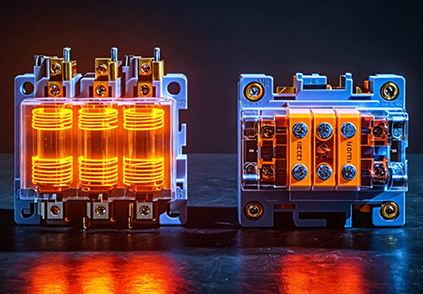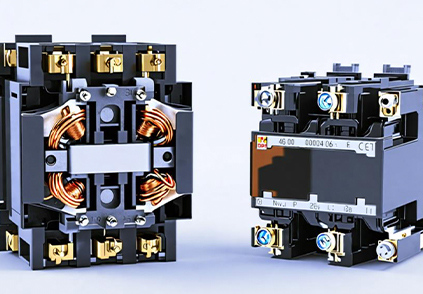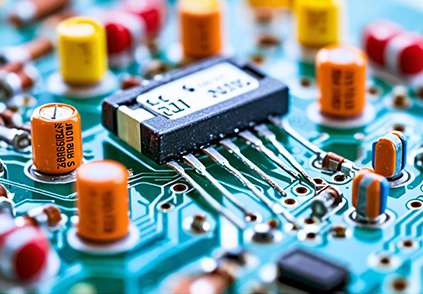High-Quality DC Fuses for Reliable Circuit Protection
Ideal for Battery Systems, Solar Installations, and Industrial Applications
DC Fuse
ELEHUB’s DC Fuse provides essential protection for DC circuits by safely interrupting overcurrent conditions. Designed for reliability and durability, it ensures circuit safety in electric vehicles and renewable energy systems. Its precision and robust construction help prevent damage and maintain system integrity under varying load conditions.
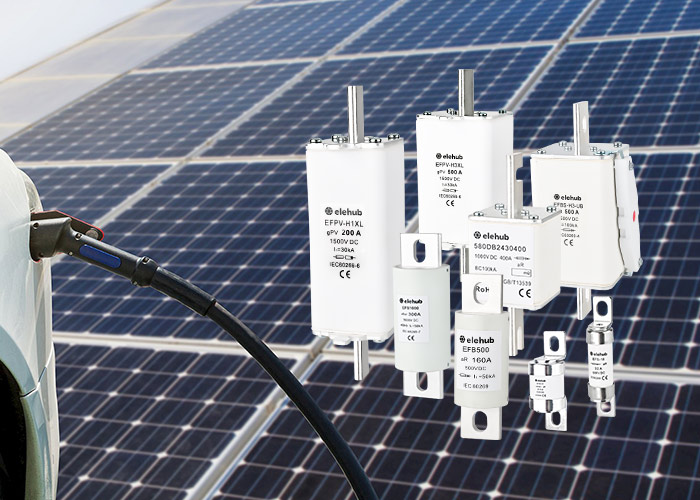
Types of DC Fuses in ELEHUB
Key Features of DC Fuses
High Overcurrent Protection
ELEHUB DC fuses are engineered to provide reliable protection against overcurrent conditions, ensuring the safety of electrical systems and preventing damage to critical components.
Fast Response Time
These fuses feature rapid response capabilities, quickly disconnecting circuits during fault conditions to minimize potential damage and enhance overall system safety.
Versatile Applications
ELEHUB offers a wide range of DC fuses specifically designed for various applications, including solar power systems, electric vehicles, and energy storage solutions, ensuring optimal performance across different environments.
Durable Construction
Made from high-quality materials, ELEHUB DC fuses are built to withstand harsh conditions while maintaining reliability. Their robust design ensures longevity and consistent performance in demanding applications.
Why Choose ELEHUB DC Fuses?
Comprehensive Protection Solutions
Tailored Products for Diverse Needs
Reliable Performance Under Extreme Conditions
Expert Support and Guidance
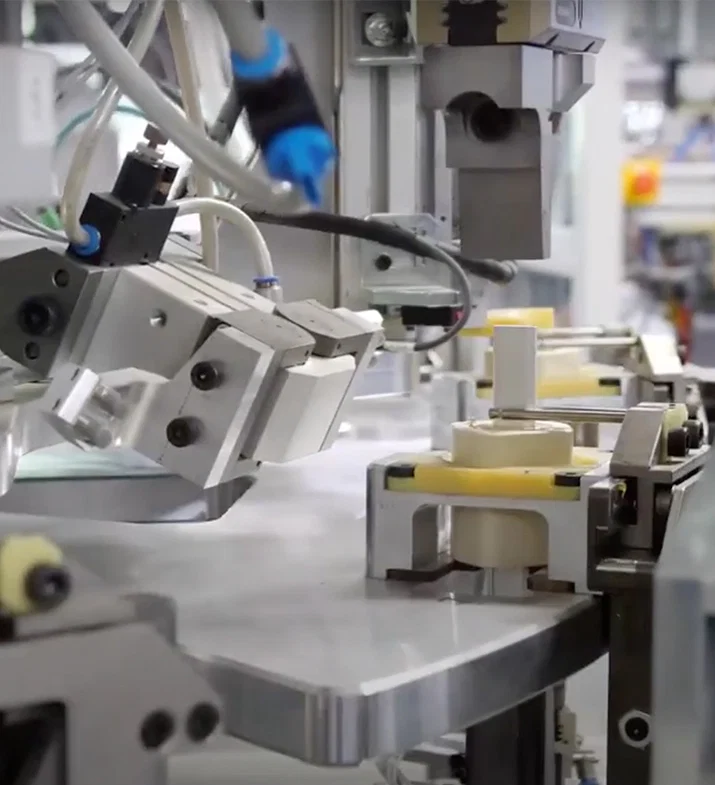
Applications of DC Fuses
Solar Power Systems
Protects solar panels and inverters from overcurrent conditions, ensuring safe and efficient operation in photovoltaic installations.
Energy Storage Systems (ESS)
Safeguards batteries and power electronics from overcurrent and short circuits, preventing potential damage and enhancing system reliability.
Electric Vehicles (EVs)
Provides essential protection for high-voltage battery packs, motor controllers, and charging systems, ensuring safety and longevity for electric vehicles.
Communication Equipment
Protects sensitive communication devices from overcurrent and short circuits, maintaining system stability in high-tech environments.
Industrial Power Distribution
Used in industrial settings to protect electrical circuits from overloads, ensuring safe operation in power distribution systems.
Railway Systems
Safeguards electrical circuits in trains and other transportation systems, ensuring continuous operation and safety.
Electric Vehicle Charging
Vital for managing electricity flow during EV charging, ensures safety, offers overcurrent protection, and enables multiple charging modes.
Renewable Energy Installations
Ensures protection against electrical faults in wind energy systems, improving efficiency and safety across renewable energy applications.
Customer Testimonials & Clients
Matt******R
France
Pa*** ***r
UK
Ric******z
Spain

FAQs of DC Fuses
Fuse vs. Circuit Breaker
Fuses and circuit breakers are crucial for electrical protection but function differently. A fuse contains a metal wire that melts under excessive current, breaking the circuit to prevent damage. Once a fuse blows, it must be replaced, as it cannot be reset. Fuses act quickly and are cost-effective but can be inconvenient due to the need for replacement.
In contrast, circuit breakers use an electromechanical mechanism to open the circuit when detecting overloads or short circuits. They can be reset after tripping, which allows for quicker recovery without replacement. Although more expensive initially, circuit breakers are versatile and suitable for various applications, including residential and industrial environments. They provide reliable protection and can be reset, making them a practical choice for ongoing electrical safety.
Can I use a DC fuse on an AC circuit?
Using a DC fuse on an AC circuit is generally not recommended due to differences in how the fuse handles current interruptions in AC versus DC applications. Here’s why:
- Arc Extinguishing: DC circuits maintain a constant current direction, which creates a continuous arc when a fuse blows. DC fuses are specifically designed with features to extinguish this sustained arc. AC circuits, on the other hand, experience current reversal, which helps naturally extinguish arcs. AC fuses are designed to handle the interruptions in AC waveform, where the current periodically crosses zero, making it easier to break the circuit.
- Voltage Rating: DC fuses are often rated for higher voltage because they need to handle the constant voltage of DC circuits. An AC circuit might have different voltage characteristics, and using a DC-rated fuse might not match the AC voltage requirements properly.
- Interrupting Capability: DC fuses might not be capable of interrupting the AC circuit safely, as their construction may not support the voltage and current characteristics of AC power. This could lead to insufficient protection or even damage to the circuit.
Stay updated on the latest innovations and trends in DC electrical components.
What is the Difference Between a Relay and a Contactor?
Relays and contactors are both electromagnetic switches, but they differ in their design, capacity, and…
What’s the Difference Between AC and DC Contactors? A Detailed Guide
When you’re dealing with electrical systems, understanding the key differences between AC and DC contactors…
What Is a Shunt Resistor? the Ultimate Guide to Shunt Resistor Basics & Applications
A shunt resistor is a precision, low-resistance component used to measure electric current by creating…
Powering Your Future with Precision and Reliability!
Inquire Now for Innovative Solutions
- +86-18968893222
- info@elehub.com
- Whatsapp: +86-18968893222
- NO.115 Xinguang Avenue, Xinguang Industrial Zone, Wenzhou, Zhejiang Province, China
CONTACT US
- We will contact you within 24 hours
- Don't worry, we hate spam too!





